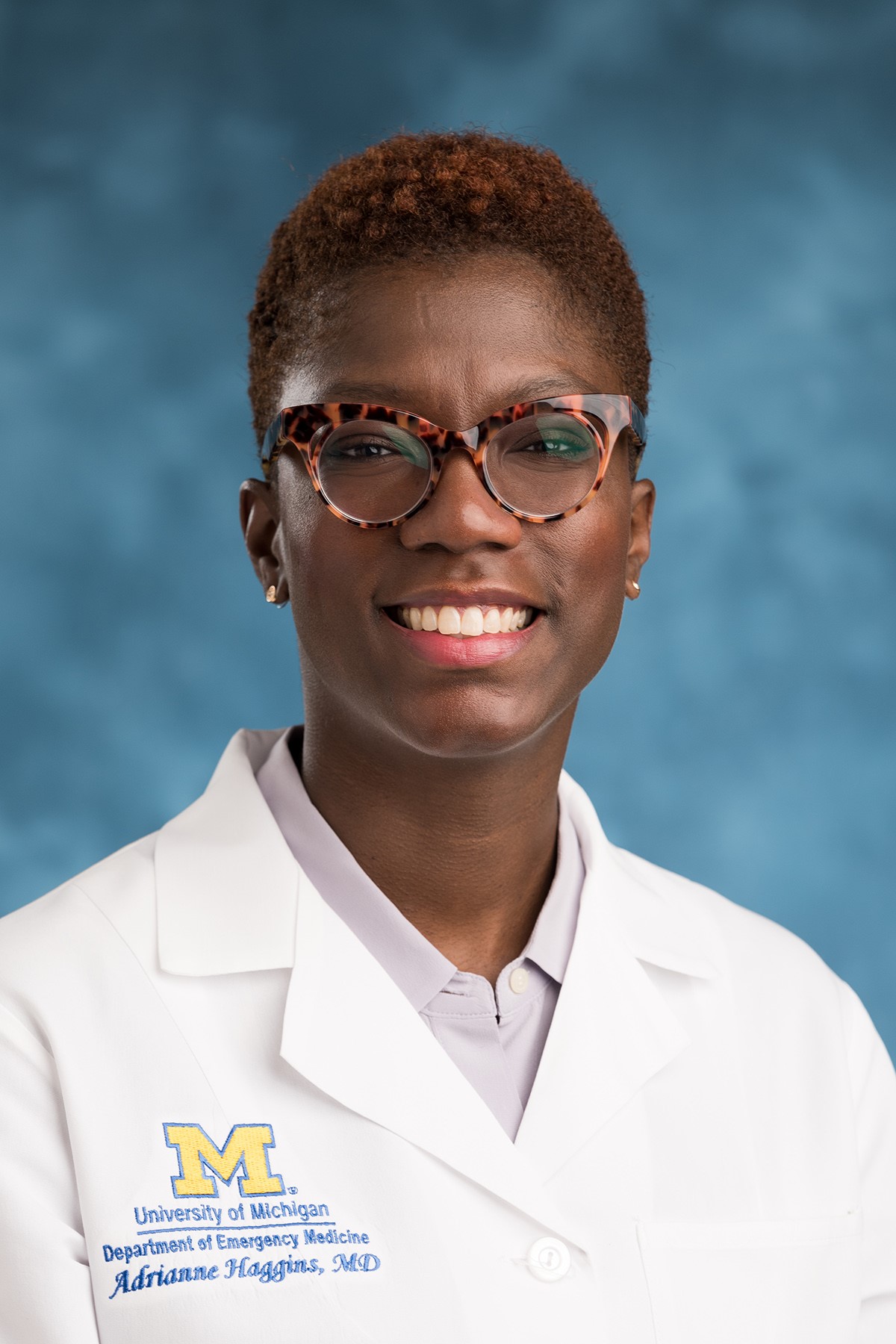Dean's Update
September 29, 2023 - Aron Sousa, MD

Friends,
This week is the final installment of our alumni writing for Women in Medicine Month, and we are fortunate to have Adrianne Haggins, MD ('07), MS to bring the series home with her piece. Dr. Haggins is a clinical associate professor of emergency medicine at the University of Michigan, who works on issues of health disparities among other scholarly interests.

During my fourth year of medical school a peer, Jeremiah Ledesma (’07), strongly encouraged me to pursue a career in emergency medicine (EM). Honestly, at the time I did not know very much about the specialty besides what I saw on television shows such as ‘ER.’ However, my EM elective at Hurley Medical Center at the Flint campus was transformative. I recall at the time, Dr. Marcia Perry, an African American woman, reaching out to me during a shift and asking me to go for a walk with her. She positively commented on my performance during the elective and inquired what I planned to pursue. Although I had other surgical sub-specialties in mind, I could not help thinking about how I felt viscerally excited to be in the emergency department (ED). It was such a chaotic space. However, I felt empowered meeting patients during desperate times, and valued the ability to see patients irrespective of their financial means or insurance status.
When I first entered medical school, I may not have known which specialty I wanted to pursue, but I knew I wanted to improve the health of vulnerable populations. I grew up in Detroit, and it was not until I went to Ann Arbor for college that I could truly visualize the stark differences in resources available in my hometown compared to what was available to persons in this college town. I have always sought opportunities to return to Detroit or similar minority communities or support students historically underrepresented. It was important to me to remain connected to such communities throughout my career. I wanted to ensure that my career choices reflected giving back in ways to improve the health and well-being of these groups. This focus has been a longstanding thread in my scholarly work.
Early in my career I began to feel unsettled about the delivery of care in EDs. My observations began to stir concerns about the lasting impact of ED care on the health of under-resourced communities. I wanted to understand the patterns of health care utilization from a broader population perspective. This led me to pursue a health services research master’s through the Robert Wood Johnson Clinical Scholars Program (UM, ’10-’12). I wanted to examine the impact of insurance coverage expansion and whether that would shift patients’ utilization of ED care. I wanted to learn about patients’ decision-making when they opted for care in the ED rather than other ambulatory settings.
I also wanted to inform how future generations of residents are trained to care for the diverse populations we see in the ED. The quick interactions, limited clinical information, differences between provider-patient backgrounds, and the pressure to make decisions can promote reliance on stereotypes or implicit bias and harm minority patients, particularly those with language barriers, or limited health literacy. Therefore, it was important for me to contribute to designing scholarly work to better understand how residents adapt to the varied needs of the vulnerable populations we serve.
I reflected on my experiences as an African American woman practicing in predominantly white male dominated clinical environments with the disparaging comments made about women’s ability to be as capable as their male counterparts. I listened to negative comments directed toward me and patients, as well as patients’ racist comments towards me. This spurred my interest in culture in EM and academic medicine, and formed my goal to understand ways to create an atmosphere that promoted a sense of belonging. I have examined the experiences of pre-med, medical students, and residents during their medical education paths to understand moments and interactions that fostered belonging and encouraged them to persist in medicine.
I am grateful for the pivotal walk with Dr. Perry during medical school, as she was my role model who affirmed my potential and provided mentorship to support my success and continues to. However, there are simply not enough persons of color, or first-generation in college physicians to serve as role models for prospective historically underrepresented students who envision entering medicine to disrupt and re-imagine health care delivery to promote equity. Therefore, individual interactions are a piece of the puzzle, but institutional barriers need to be uncovered and addressed to create the meaningful shifts in academic medicine culture and sufficiently support the needs of learners from backgrounds that are underrepresented and undervalued. I hope my work contributes to illuminating the voices of persons from these communities in a manner that provides insight into their experiences, resilience, and ultimately leads to improved delivery of care to minority communities.
I want to thank Drs. Haggins, Burns, Kelsey, and Smith-King for their leadership and willingness to share their stories this month. The college reached gender parity for the medical school nearly forty years ago, well before the rest of the country. We still have much work to do, but these faculty represent the next step in creating the same gender parity among faculty and leaders in medicine.
Serving the people with you,
Aron
Aron Sousa, MD, FACP
Dean

